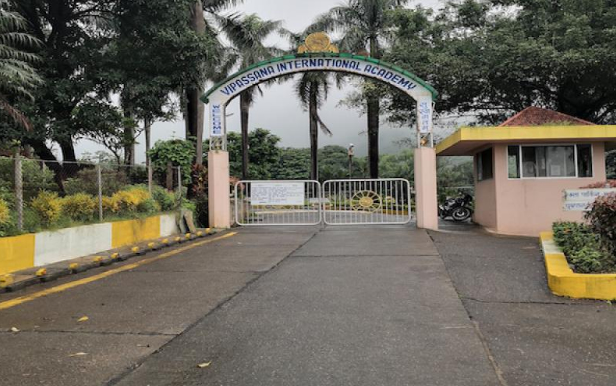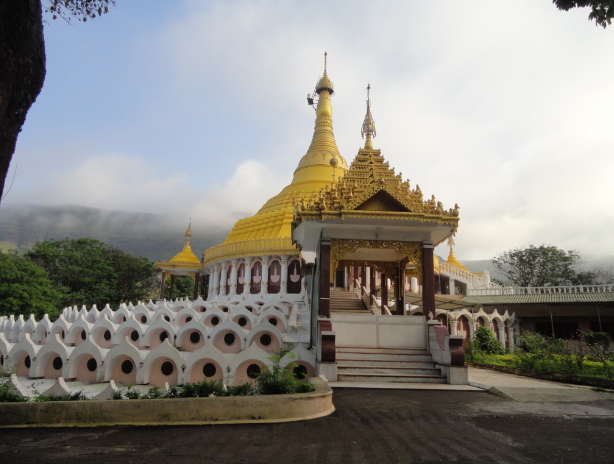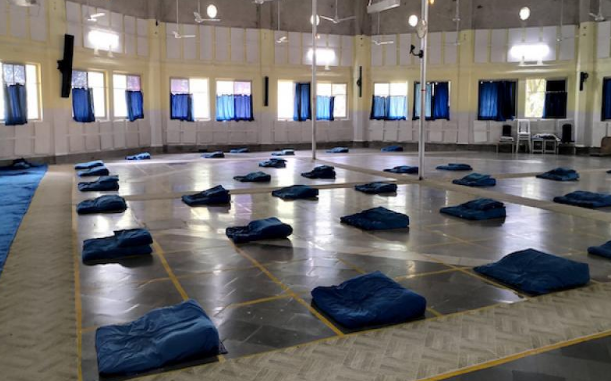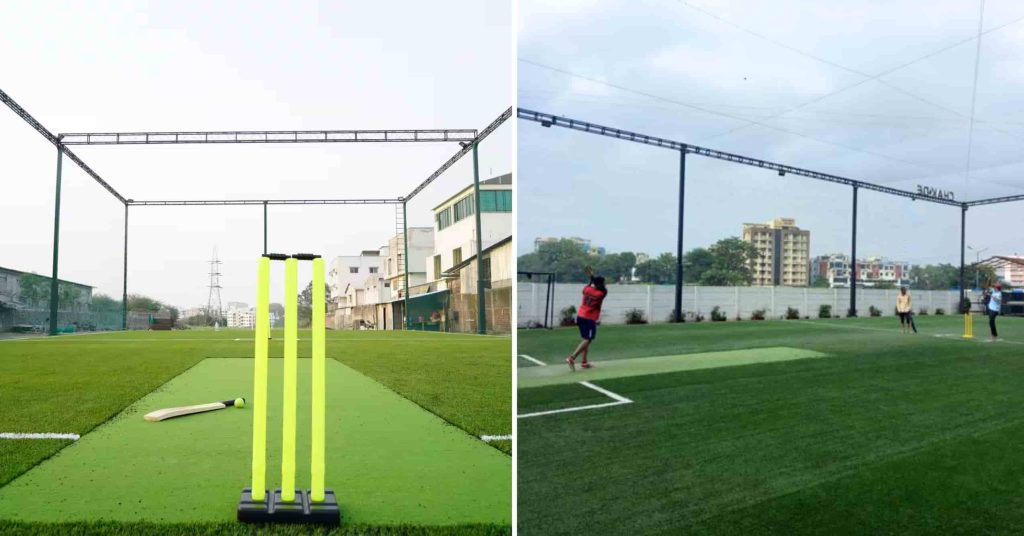Vipassana Igatpuri at Dhamma Giri is one of the world’s largest and most renowned Vipassana meditation centers. It represents one of India’s most transformative meditation experiences, drawing seekers from across the globe.
This article provides a complete guide for anyone planning to attend a Vipassana retreat at Igatpuri. You’ll find detailed information about the meditation center, including course types, facilities, and preparation tips.
From course registration to understanding the essence of Vipassana, this guide will help you mentally and physically prepare for the experience.
About The Dhamma Giri: Vipassana Centre, Igatpuri
Below is a detailed explanation of Dhamma Giri and its significance as a center for Vipassana meditation.
What is Vipassana?
Vipassana, meaning “to see things as they really are,” stands as one of India’s most ancient meditation techniques. This 2,500-year-old practice serves as a universal remedy for mental suffering and represents a complete art of living.

The technique focuses on self-purification through self-observation, beginning with natural breath awareness to concentrate the mind. As practitioners develop sharpened awareness, they observe the changing nature of body and mind, experiencing universal truths of impermanence, suffering, and egolessness.
This direct experiential understanding leads to genuine mental purification. The practice remains completely secular, transcending religious boundaries and proving beneficial regardless of one’s background, race, or beliefs.
Dhamma Giri: The Hill of Dhamma
Dhamma Giri, meaning “Hill of Dhamma,” is one of the world’s largest meditation centers and serves as the headquarters of the global Vipassana organization. Founded in 1976 by S.N. Goenka, it serves as the principal hub for Vipassana courses worldwide.

The center is situated on a peaceful 60-acre campus nestled in the Western Ghats of Igatpuri. Its iconic golden pagoda, serene walking areas, and disciplined environment offer the ideal space for deep meditative practice and personal transformation.
Vipassana Igatpuri Location
MHX6+22G, Dhamma Giri Rd, Dhammagiri International Academy, Igatpuri, Maharashtra 422403
Dhamma Giri is situated in the town of Igatpuri, which is 45 km away from Nashik and 136 km away from Mumbai, on the Mumbai-Agra Highway. The central railway line connects it well. Geographically, it is situated at 20 N latitude and 74 E Longitude and an altitude of 599 m above mean sea level.
Vipassana Course At Dhamma Giri, Igatpuri
Below is an overview of the Vipassana course offered at Dhamma Giri, including its structure, routine, and what participants can expect.
Types of Courses Available
10-Day Courses: Ideal for beginner students, the 10-day course teaches the fundamentals of Vipassana through guided meditation, Noble Silence, and daily discourses by S.N. Goenka.
Satipatthana Courses (7 Days): For experienced meditators, this course emphasizes the profound insights of the Satipatthana Sutta. It sharpens awareness and strengthens equanimity through intensive practice and strict adherence to the Vipassana technique.
Long Courses (20, 30, 45 Days): These intensive courses are invitation-only for seasoned practitioners. They allow more profound purification and self-realization through extended practice and complete isolation from worldly distractions.
Course Timetable
Here is the daily schedule of the courses:
| Timings | Things To Do |
|---|---|
| 4:00 am | Morning wake-up bell |
| 4:30-6:30 am | Meditate in the hall or in your room |
| 6:30-8:00 am | Breakfast break |
| 8:00-9:00 am | Group meditation in the hall |
| 9:00-11:00 am | Meditate in the hall or in your room according to the teacher’s instructions |
| 11:00-12:00 noon | Lunch break |
| 12noon-1:00 pm | Rest and interviews with the teacher |
| 1:00-2:30 pm | Meditate in the hall or in your room |
| 2:30-3:30 pm | Group meditation in the hall |
| 3:30-5:00 pm | Meditate in the hall or in your own room according to the teacher’s instructions |
| 5:00-6:00 pm | Tea break |
| 6:00-7:00 pm | Group meditation in the hall |
| 7:00-8:15 pm | Discourse in the hall |
| 8:15-9:00 pm | Group meditation in the hall |
| 9:00-9:30 pm | Question time in the hall |
| 9:30 pm | Retire to your own room–Lights out |
Code of Conduct
During the course, all students are expected to follow a strict moral code to support an atmosphere of serious meditation. This includes:
- Adhering to the Five Precepts: No killing, stealing, sexual activity, lying, or use of intoxicants.
- Noble Silence: No communication with fellow students—no talking, gestures, eye contact, or written notes.
- Segregation by Gender: Separate accommodation, dining, and walking areas for men and women.
- Self-Discipline: All students must follow the schedule precisely, including wake-up calls, meals, and meditation hours.
- Respect for Teachers and the Centre: Disrespectful behavior, disruptions, or failure to follow the code may lead to dismissal from the course.
- No mobile device
- No reading/writing material
Only those who agree to fully comply with the code and rules should register for a course.
Registration Process
Below are the registration guidelines and processes :
- Eligibility: Applicants must be at least 18 years old, in good physical and mental health, and willing to comply with the course guidelines.
- Online Application: Registration must be completed through the official website well in advance, as there are limited seats available.
- Health Declaration: Participants must declare any flu-like symptoms and may be asked to leave on Day 0 if symptoms are observed.
- Confirmation: Admission is confirmed only after a review by the center. Walk-ins or unconfirmed applicants are not allowed.
- No Fees: Courses are free of charge. Donations are accepted only from old students and only after course completion.
Who Can Attend Each Course Type
The following is the criteria to attend the Vipassana meditation courses:
- Individuals above 18 years of age and in good health.
- Those who are willing to maintain self-hygiene and follow safety guidelines during the course.
- Applicants who agree to cooperate with the management in all situations, including the possibility of being asked to leave the campus if required.
- Those who are symptom-free (fever, cough, cold, or influenza-like symptoms) 10 days before the course starts and agree to cancel admission if symptoms develop.
- Willing to leave the campus on Day 0 if found symptomatic.
- Ready to follow all Government and Centre guidelines (Dhamma Giri/Tapovana, Igatpuri).
- Individuals who are joining of their own free will despite understanding the health risks related to COVID.
- Applicants agree to the trust’s right to remove any student from the course if deemed necessary.
Why Attend Vipassana Meditation?
Vipassana is an ancient meditation technique that brings inner peace and clarity. It teaches you to observe your mind and body deeply through self-awareness. The practice helps eliminate mental negativity like anger, stress, and anxiety. Over time, it purifies the mind by removing these defilements from their root.

Through silence and discipline, you develop strong concentration and self-control. This structured routine strengthens your focus and inner stability. You gain insight into how thoughts and emotions arise and pass. This awareness trains you to respond calmly instead of reacting impulsively.
Regular practice builds emotional strength and resilience. You become better equipped to face challenges with calm and clarity. Overall, Vipassana is a path of self-transformation and inner growth. It offers practical tools for spiritual development and lasting well-being.
Challenges of Vipassana meditation
Here are some of the challenges you might encounter with Vipassana meditation:
- Strict discipline and silence: Adhering to the Code of Conduct (no killing, stealing, sexual activity, lying, or intoxicants) and maintaining noble silence can be mentally and emotionally taxing.
- Long hours of meditation: Sitting for up to 10 hours daily (from about 4:30 a.m. to 9 p.m.) can be physically uncomfortable and mentally challenging.
- Emotional intensity: Deep meditation often brings suppressed feelings to the surface, requiring courage and equanimity to face them.
- No external distractions: You must go without phones, books, writing, entertainment, and even yoga, embracing an austere, introspective environment.
- Not a quick fix: lasting transformation requires continued practice—ten days only teaches the basics; deeper change unfolds over time.
- Not suitable for serious psychiatric conditions: The course isn’t designed for managing severe mental disorders and may even be destabilizing for those with such conditions.
Packing Tips For First-Time Visitors
Bring loose-fitting clothes that cover your shoulders, chest, and knees (avoid tight, transparent, or revealing clothing). Temperatures can vary, especially in Igatpuri—carry sweaters, shawls, and socks for early mornings and evenings.
Toothbrush, toothpaste, soap, towel, comb, sanitary products, etc. (no scented or luxury items). Bring prescribed medicines with clear instructions; inform the course manager if needed. Umbrella or raincoat (if attending during monsoon season).
Physical & Mental Preparedness
- Adjust your sleep schedule: Begin waking up earlier a few days before the course (4:00–4:30 AM is the wake-up bell time).
- Reduce screen time and distractions: This helps ease the transition to a device-free environment.
- Minimize stimulants: If you consume caffeine, tobacco, or sugar regularly, try reducing them before arrival to avoid withdrawal symptoms.
- Come with an open mind: Be ready to face physical and emotional discomfort as part of the inner purification process.
Dos and Don’ts
Do’s
- Follow the Code of Discipline strictly for the full 10 days.
- Wear modest, non-distracting clothing as per the center’s dress code.
- Maintain noble silence (no speaking, gestures, writing) during the course.
- Attend all group sittings and follow the schedule sincerely.
- Surrender to the process without expectations or judgments.
Don’ts
- Do not leave the course midway unless in a genuine emergency.
- Do not perform yoga, chanting, or any other spiritual practices during the course.
- Refrain from any physical contact with fellow meditators, including gestures or eye contact.
- Do not lie, steal, gossip, or engage in sexual activity or misconduct.
- Avoid any form of entertainment or distraction, including singing, humming, or drawing.
- Do not engage in debate or discussion with other students—all queries should be directed only to the teacher.
Suggested Reads:
Conclusion – Vipassana Igatpuri Is Truly The Path To Inner Peace And Self-Transformation
Vipassana at Dhamma Giri offers more than just a break from daily life. It’s a reset for the mind. The structured environment, authentic teaching, and silent setting support deep transformation. Dhamma Giri offers an unparalleled opportunity for profound self-discovery through one of humanity’s most time-tested meditation techniques.
The center’s authentic teaching approach, supportive environment, and comprehensive facilities create optimal conditions for genuine spiritual transformation and mental purification. It’s not easy, but the mental clarity, peace, and resilience developed are invaluable. Most participants leave with a renewed perspective on life.
For serious seekers of inner peace and wisdom, this remarkable institution provides the perfect foundation for lifelong meditation practice development. This retreat is one of the most profound experiences available in India today.
FAQs
Vipassana courses are free of cost. All expenses are covered by donations from past participants. First-time students can donate only after completing the course.
The standard introductory course is 10 full days. Arrive on Day 0 and leave on the morning of Day 11. Advanced courses can be longer.
It can be physically and mentally challenging, especially due to long hours of sitting and emotional release. However, the discomfort usually subsides by mid-course.
Phones, laptops, books, or any form of external communication are not allowed. Devices are safely stored and returned after the course.
Dress modestly and comfortably. Avoid tight, transparent, or flashy clothing. Sleeveless tops, shorts, and revealing clothes are not allowed.











